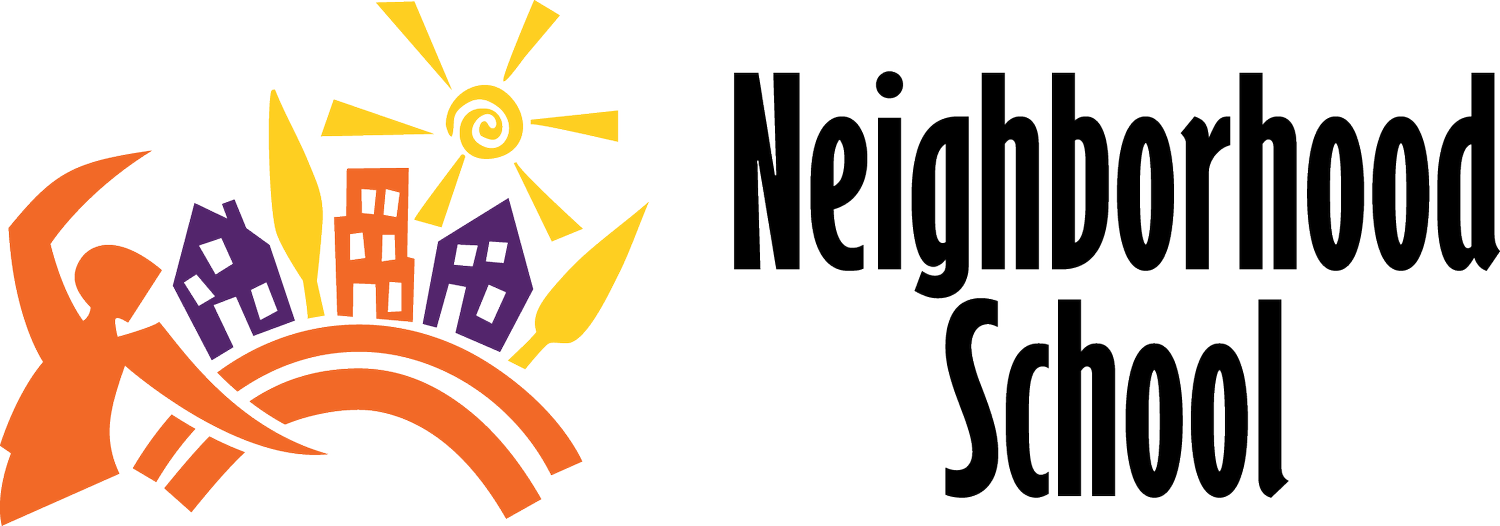Our Pedagogy

NS teachers practice and reflect on the fields of progressive education, liberatory pedagogy, and developmental learning.
Use the arrows below to read in-depth about these pedagogies.
-
Progressive Education
In many Indigenous cultures around the world, children have long been valued for their unique perspectives and ways of experiencing the world. Young people’s needs and strengths are integrated into the community’s goals of spiritual, physical, and mental development for all.
In the colonized American context, this intentional nurturing and uplifting of childhood was not considered important until the early 20th century. Child psychology emerged as a distinct field and a movement of progressive education began; both were in opposition to the mainstream view of children as underdeveloped adults who were instruments for labor. Scholars such as John Dewey and Lucy Sprague Mitchell formalized the scholarship of progressive education within Western institutions.
At NS, the core beliefs of progressive education include:
- Children learn within the context of their relationships, so teachers pay great attention to the quality of those relationships and also understand the cultural contexts surrounding children.
- Children have incredible strengths of observation, creativity, and meaning-making. Teachers help students access these skills by providing rich experiences and learning scaffolds so students can connect new knowledge to prior schema.
- Children’s emotional and somatic experiences are integral to their learning processes. Teachers guide students in being curious about and taking care of their internal lives, which allows students to be more powerful thinkers and communicators.
Professional development for NS staff has included exploring questions of the field such as:
- How can educators use care, instead of control, to teach students how to build cooperative classroom routines?
- How can educators teach democratic processes for decision making?
- How can educators integrate outdoor play and art-making into rigorous study of science, literature, and history?
-
Liberatory Pedagogy
Liberatory pedagogy is the intersection of critical thinking and critical consciousness. Children exist within systems of power and inequity, and they experience this in their relationships with others and their own selves, starting at early ages. When adults ignore this, it limits children’s academic learning as well as their emotional well-being.
How joyful it is to learn to think deeply and to use those skills to see clearly the systems around us. How empowering it can be for young people to describe what feels good about sharing power and bad about hoarding it. How freeing it is to know that dehumanizing stories were once constructed by groups of people, and therefore can be retold in more just ways.
At NS, the core learning objectives of liberatory pedagogy are:
- Critical reflection: learning the language, history, and current events required to analyze social problems in systemic terms.
- Critical action: practicing the skills required to take individual and collective actions that lead to change in policies and practices.
- Critical hope: strengthening the courage needed to envision another way, and experiencing the joy of solidarity between your struggles and others’ struggles.
Professional development for NS staff has included exploring questions of this field such as:
- How can educators balance the tension of protecting students from discomfort while also teaching stories of injustice?
- How can educators teach emotional awareness and social communication skills, so that students can be part of creating healing-centered learning communities?
- How can educators collaborate with parents and caregivers to support students’ metacognition of their racial identity development?
-
Developmental Learning
Developmental psychology provides a framework of cognitive, emotional, sensory, and physical development, which can help educators guide students through important stages of growth. At the same time, children have a wide range of strengths and vulnerabilities, which evolve at various paces. Unfortunately, a focus on homogeneity and normativity in schools can lead many students to feel isolated, ashamed, and pathologized if they don’t follow a “typical” timeline of development. At NS, we work hard to avoid this, while still acknowledging differences and providing personalized instruction so all students can learn deeply.
We partner with families to understand their children’s learning profiles: what helps them regulate, what they struggle with, what allows them to thrive. Some students at NS are dyslexic, autistic, or have ADHD. Some manage anxiety or have sensory processing challenges, while also being compassionate teammates, budding poets, and imaginative engineers. We help students learn how to advocate for their needs and experiment with strategies to accomplish their goals. We connect families with neuropsychological evaluators, occupational therapists, mental health experts, and executive functioning coaches, as needed.
At NS, our expertise in child development and disability justice looks like:
- We design curricula with rigorous learning objectives, but they are conceptually nuanced, so there is no one “correct” answer. We allow students to communicate their thoughts in a variety of ways; no students are inferior, because everyone can contribute insight. The mark of a successful unit is one where students and teachers alike have been changed by everyone’s new ideas, which have been expressed through multiple modalities.
- We teach students and families about important diagnoses and learning disabilities. We provide accommodations and modifications so students with disabilities can access curriculum. Using tools and asking for specific support is everyone’s right and responsibility.
- We teach most of our curriculum during school hours and limit homework in order to support play and rest. We create ways for students to share their learning with families and continue their curiosity outside of school.
Professional development for NS staff has included exploring questions of this field such as:
- How can educators incorporate the latest research on emotional and somatic co-regulation to help students connect to instruction, even when they experience learning as stressful?
- How can educators differentiate instruction so students have individual agency over their learning, while also enjoying a cohesive and communal instructional experience?
- How can educators apply neuroscience research on executive functioning development to help students accomplish complex long-term projects?
